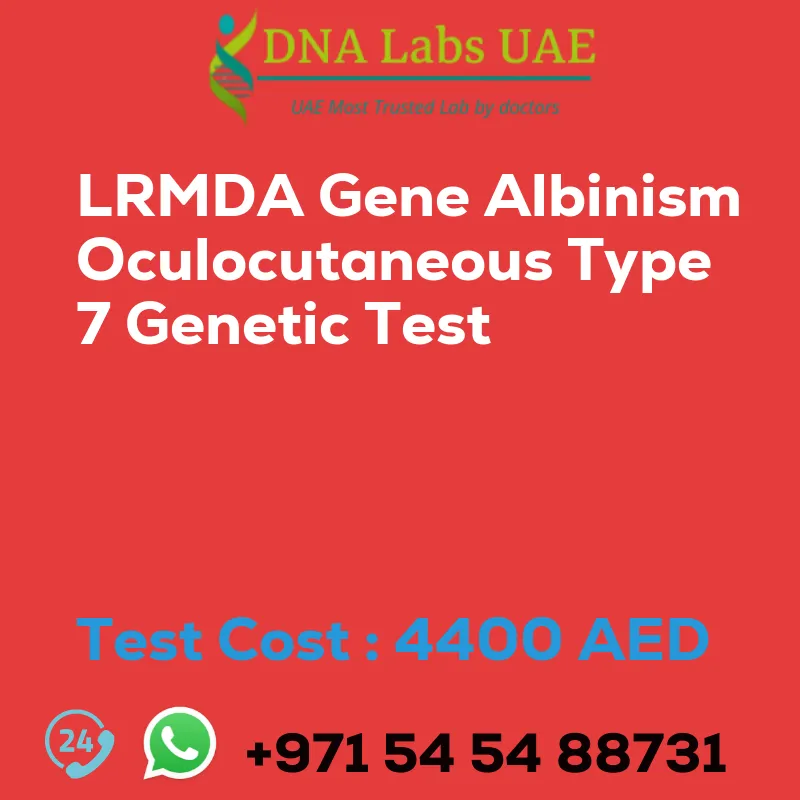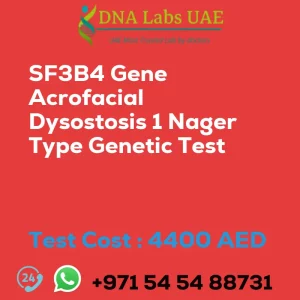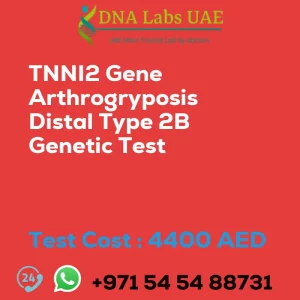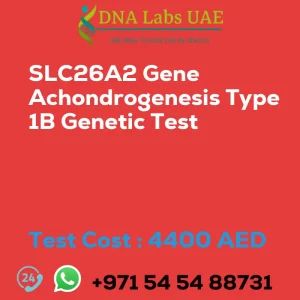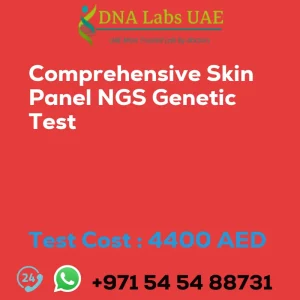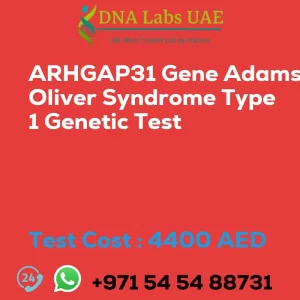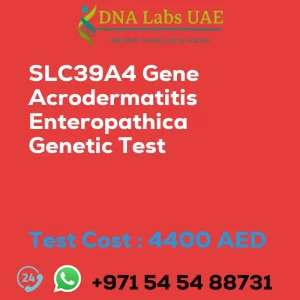LRMDA Gene Albinism oculocutaneous type 7 Genetic Test
Components: LRMDA Gene Albinism oculocutaneous type 7 Genetic Test
Price: 4400.0 AED
Sample Condition: Blood or Extracted DNA or One drop Blood on FTA Card
Report Delivery: 3 to 4 Weeks
Method: NGS Technology
Test Type: Osteology Dermatology Immunology Disorders
Doctor: Dermatologist
Test Department: Genetics
Pre Test Information: Clinical History of Patient who is going for LRMDA Gene Albinism, oculocutaneous type 7 NGS Genetic DNA Test. A Genetic Counselling session to draw a pedigree chart of family members affected with LRMDA Gene Albinism, oculocutaneous type 7 NGS Genetic DNA Test gene LRMDA
Test Details:
The LRMDA gene is associated with a specific type of albinism known as oculocutaneous type 7. Albinism is a genetic condition characterized by a lack of pigmentation in the hair, skin, and eyes. Oculocutaneous albinism affects the eyes, skin, and hair, leading to vision problems, light sensitivity, and pale skin and hair.
NGS (Next-Generation Sequencing) genetic testing is a type of genetic testing that analyzes multiple genes simultaneously to identify variations or mutations that may be associated with a particular condition or disease. In the case of albinism, NGS testing can be used to detect variations in the LRMDA gene that may be responsible for oculocutaneous type 7.
NGS testing involves collecting a sample of DNA, typically through a blood sample or cheek swab, and sequencing the DNA to identify any variations in the LRMDA gene. This can help diagnose individuals with oculocutaneous albinism type 7 and provide information about the specific genetic mutation causing the condition.
Genetic testing for albinism can be useful for confirming a diagnosis, understanding the inheritance pattern of the condition, and providing information about potential risks for future children. It can also be helpful for genetic counseling and providing personalized treatment and management plans for individuals with albinism.
It’s important to note that genetic testing should be done under the guidance of a healthcare professional, such as a genetic counselor or medical geneticist, who can interpret the results and provide appropriate support and guidance.
| Test Name | LRMDA Gene Albinism oculocutaneous type 7 Genetic Test |
|---|---|
| Components | |
| Price | 4400.0 AED |
| Sample Condition | Blood or Extracted DNA or One drop Blood on FTA Card |
| Report Delivery | 3 to 4 Weeks |
| Method | NGS Technology |
| Test type | Osteology Dermatology Immunology Disorders |
| Doctor | Dermatologist |
| Test Department: | Genetics |
| Pre Test Information | Clinical History of Patient who is going for LRMDA Gene Albinism, oculocutaneous type 7 NGS Genetic DNA Test. A Genetic Counselling session to draw a pedigree chart of family members affected with LRMDA Gene Albinism, oculocutaneous type 7 NGS Genetic DNA Test gene LRMDA |
| Test Details |
The LRMDA gene is associated with a specific type of albinism known as oculocutaneous type 7. Albinism is a genetic condition characterized by a lack of pigmentation in the hair, skin, and eyes. Oculocutaneous albinism affects the eyes, skin, and hair, leading to vision problems, light sensitivity, and pale skin and hair. NGS (Next-Generation Sequencing) genetic testing is a type of genetic testing that analyzes multiple genes simultaneously to identify variations or mutations that may be associated with a particular condition or disease. In the case of albinism, NGS testing can be used to detect variations in the LRMDA gene that may be responsible for oculocutaneous type 7. NGS testing involves collecting a sample of DNA, typically through a blood sample or cheek swab, and sequencing the DNA to identify any variations in the LRMDA gene. This can help diagnose individuals with oculocutaneous albinism type 7 and provide information about the specific genetic mutation causing the condition. Genetic testing for albinism can be useful for confirming a diagnosis, understanding the inheritance pattern of the condition, and providing information about potential risks for future children. It can also be helpful for genetic counseling and providing personalized treatment and management plans for individuals with albinism. It’s important to note that genetic testing should be done under the guidance of a healthcare professional, such as a genetic counselor or medical geneticist, who can interpret the results and provide appropriate support and guidance. |

